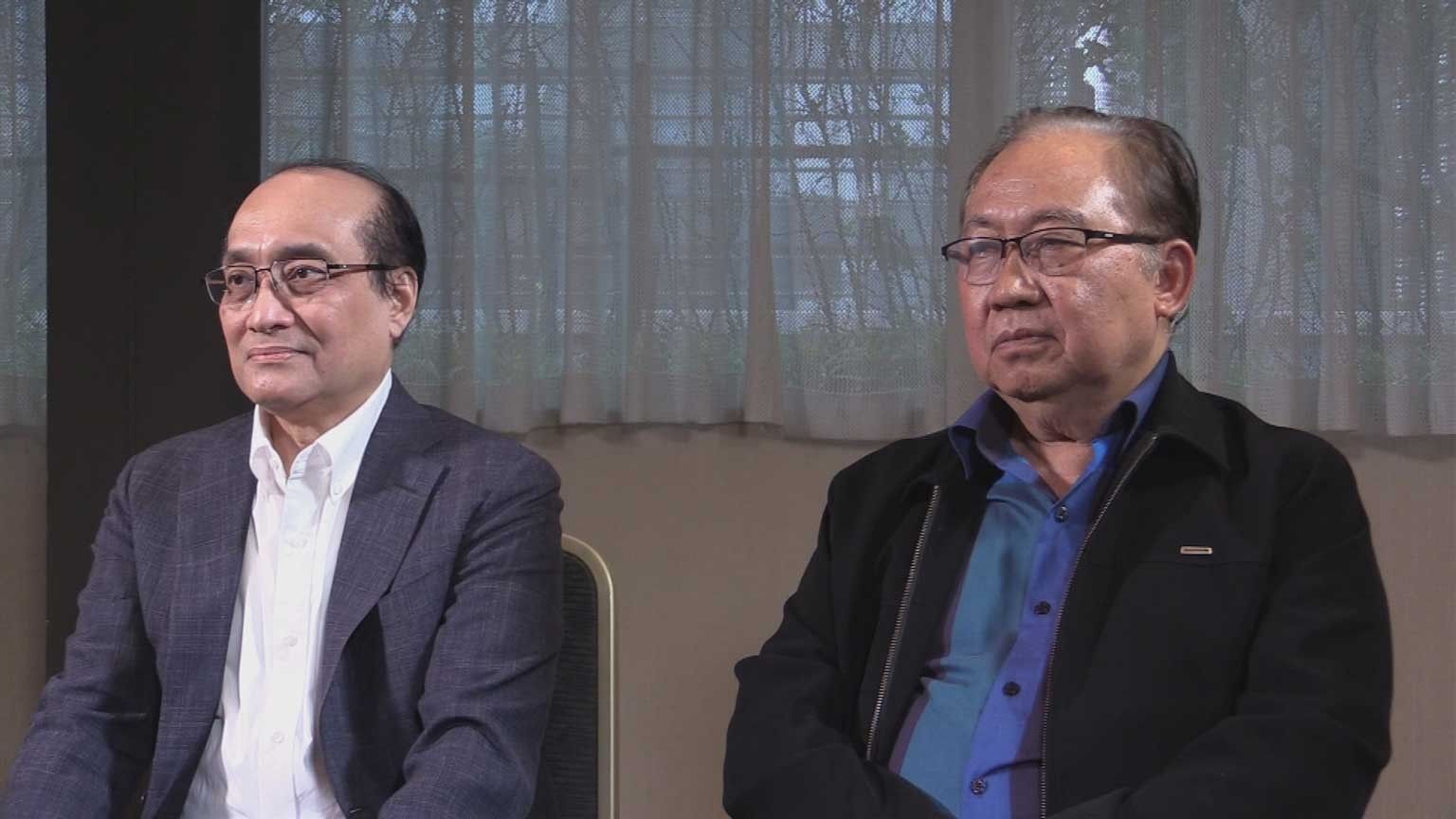The resistance leaders spent seven days in Japan meeting officials, Diet members and reporters. During their stay, they called for a unified front against the military's oppression.
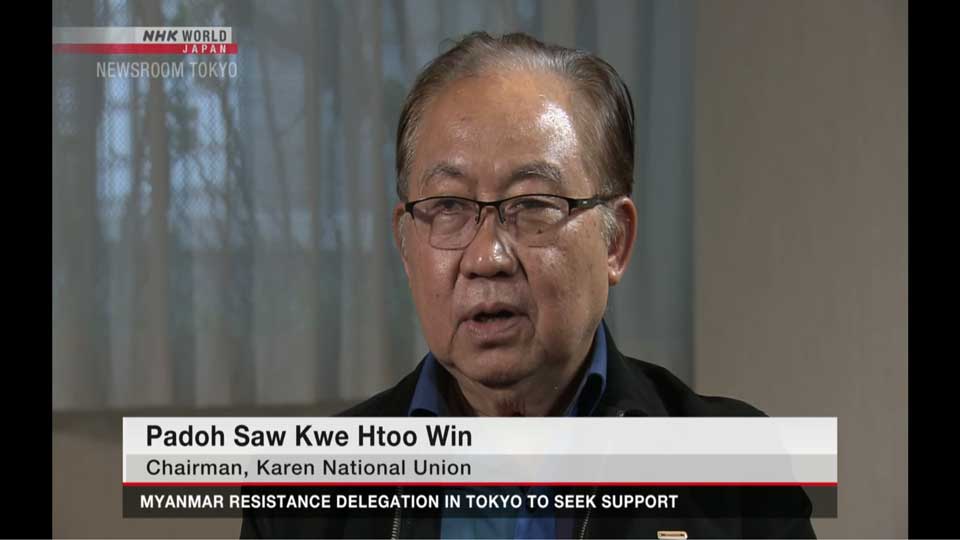
"I'd like this visit to symbolize the cooperation between ethnic groups and the NUG," said Padoh Saw Kwe Htoo Win, Chairman of the KNU.
Zaw Wai Soe, the NUG's Minister of Education and Health, echoed that message. "The ethnic armed organizations are more experienced in politics than we are, and the NUG has much to learn from them."
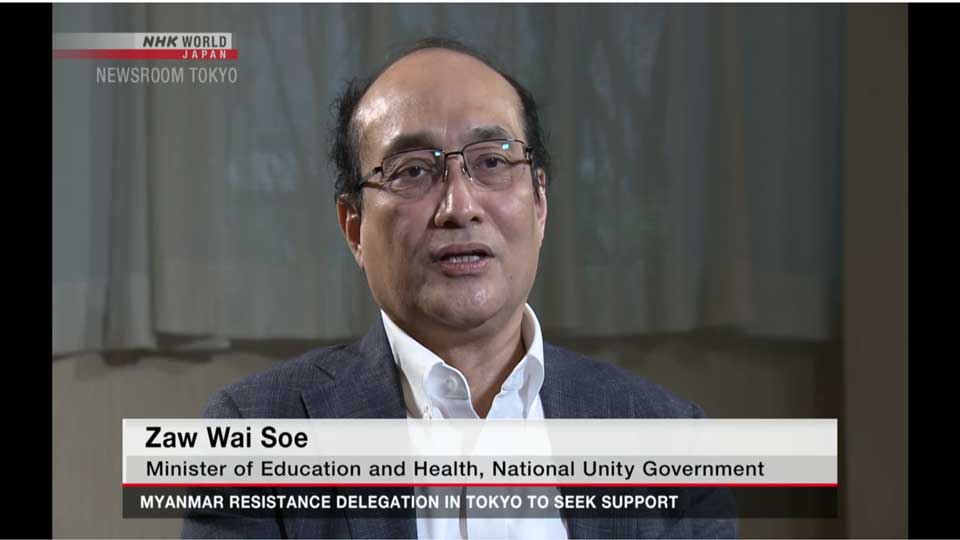
Coordination is key
The resistance alliance was forged after the coup in 2021, when peaceful demonstrations by civilians were brutally put down by the military and young people began taking up weapons to defend themselves. They fled to areas controlled by ethnic armed groups that have been fighting the junta military for decades.
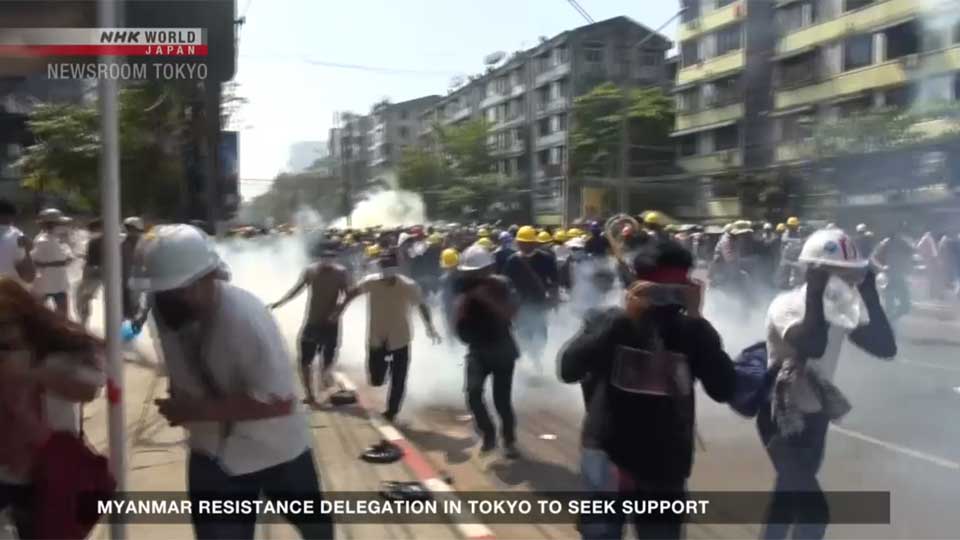
The NUG, a group of ousted lawmakers, was among those who sought the help of the ethnic groups ― including the KNU, from Karen State in southeastern Myanmar, which has fought for autonomy since the country's independence in 1948. The KNU and other groups agreed to train and supply newly formed militias.
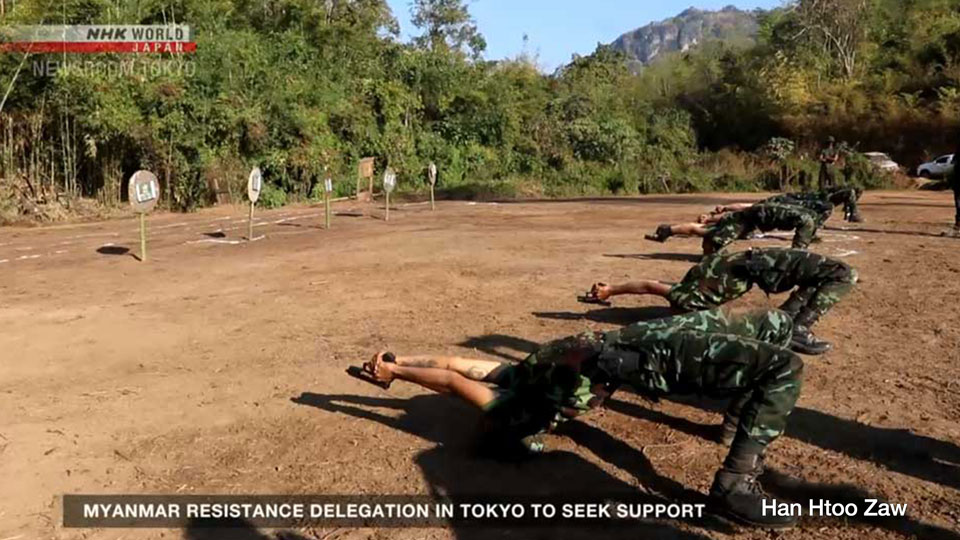
The resistance has made major gains on the battlefield in recent months. According to a local independent media outlet, the rebels now control over 50 towns. In response, the military has been escalating its terror tactics against civilians.
The result, says Zaw Wai Soe, is a deepening humanitarian crisis.
"The Japanese government should impose economic sanctions on the military dictatorship," he says. "We believe there are many things Japan can do in cooperation with international organizations and neighboring countries, such as stopping the flow of foreign currency to buy fuel and weapons for airstrikes."
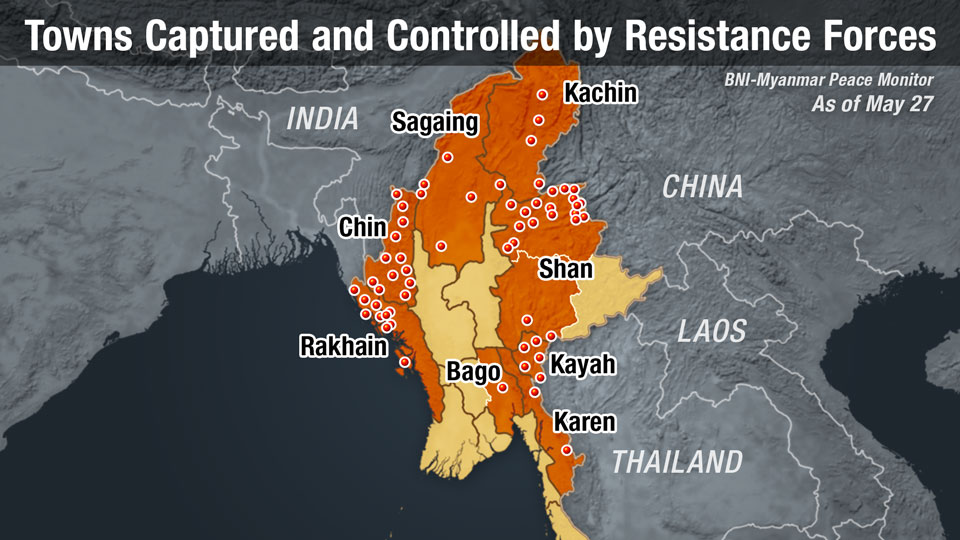
Building a federal democracy
The resistance in Myanmar is already looking ahead to life after the junta. It has released plans to install a democratic constitution. The new charter would entail federal power overseeing states, each with its own legislative, executive, and judicial authority.
But that transition comes with major challenges ― a situation that requires a new strategy from the outside world.
"The international community has proposed negotiating with the military, but the military itself is to blame for these issues," said Padhoh Saw Kwe Htoo Win. "We would like (other countries) to prioritize discussions with us as a way of finding a solution to our political aims."
There are signs this is already happening.
While in Japan, the officials exchanged ideas with a bipartisan coalition of Diet members supporting Myanmar's democratization. That was followed by talks between the ethnic armed groups and senior officials of Japan's Foreign Ministry, underlining the shift in Tokyo's policy toward Myanmar.
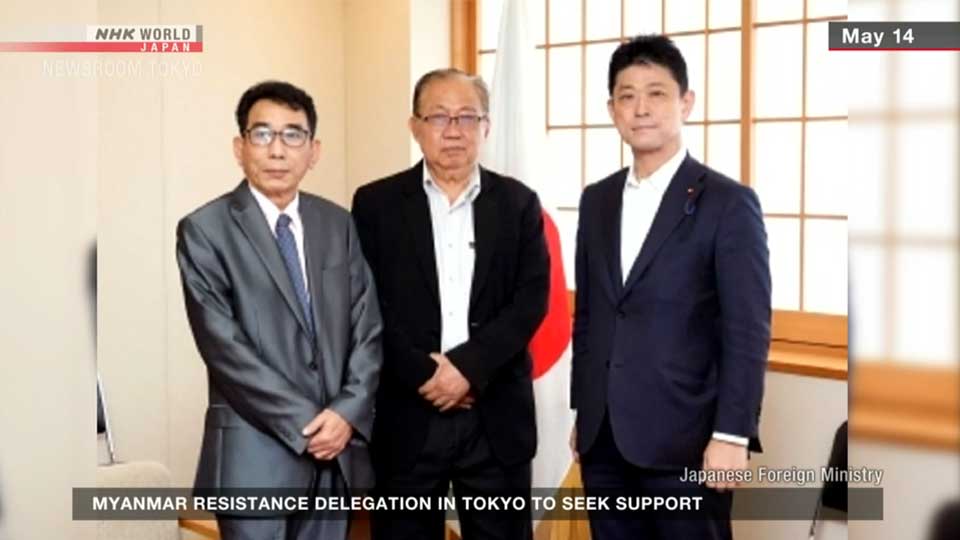
Padoh Saw Kwe Htoo Win says Myanmar's ethnic groups and the NUG share common principles: First, the military must not be involved in politics, and must be subject to a government elected by the people. Second, the country must transition to a federal democratic state in the future. Third, fairness must be ensured during the transition period.
"We must also discuss how to integrate armed organizations to support national defense," he added. "We didn't seek conflict 76 years ago. We have been advocating the right of our people to live while developing as one ethnic group. In the end, there was no other choice, and we decided to take up arms."
Zaw Wai Soe also says it's important that Myanmar preserve its ethnic cultures. "Since ours is a diverse nation made up of 135 ethnic groups, we must allow students to receive education in their native tongue," he says. "We must develop native languages and cultures. We will work with all the ethnic groups to build a new education system from the bottom up."
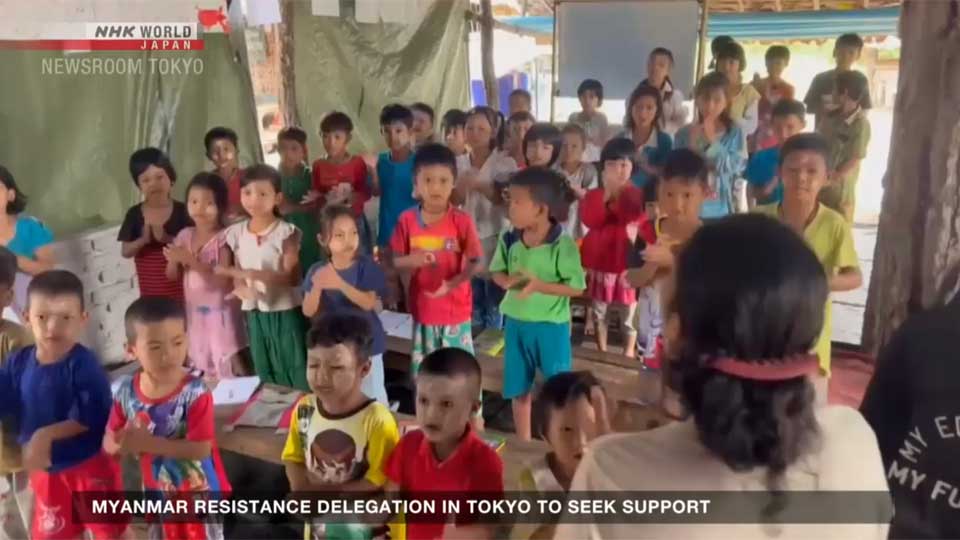
Urgent action needed to save lives
Three years after the coup, the number of Myanmar soldiers is believed to have shrunk from 400,000 to 130,000. In February, the junta announced a call-up for people 18 and older.
"This shows that the military has no grip on the future," says Zaw Wai Soe. "It has led to many young people being unwilling to remain in Myanmar and fleeing abroad. This is a loss to our nation, and we are doing everything we can to prevent this loss from continuing."
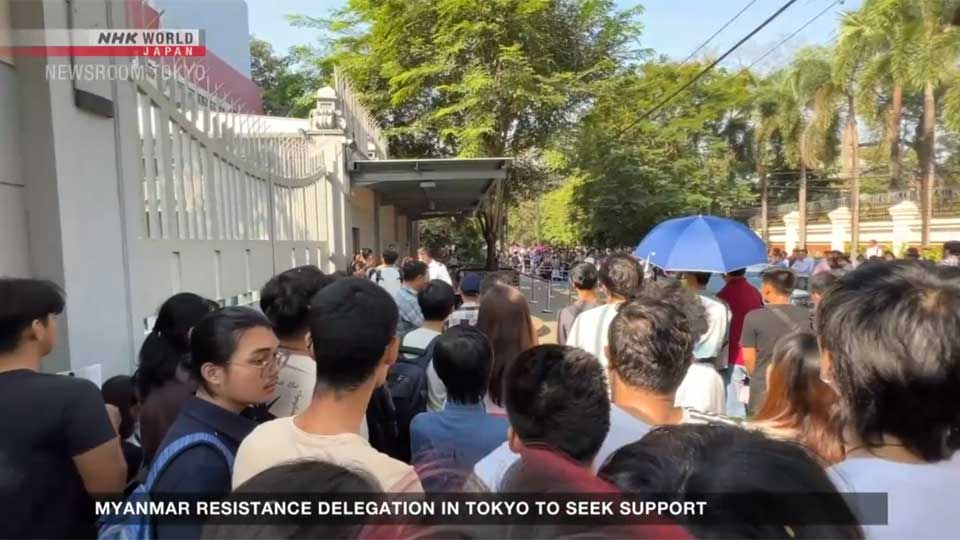
Without assistance from the international community, Padoh Saw Kwe Htoo Win says, it will be hard for Myanmar to lift itself out of poverty:
"Our needs are too big, and it is impossible to solve the problem on our own. ASEAN organizations are providing support, but since the military regime is the gateway, it is difficult to reach the refugees, who are in desperate need. Please provide cross-border aid to the fullest extent possible, so it directly reaches the Myanmar people."
